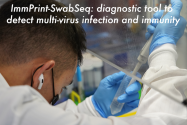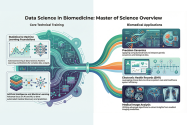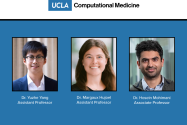All News

Yuzhe Yang, an Assistant Professor of Computational Medicine and Computer Science at UCLA and director of the Health Intelligence Lab, has been awarded an Honorable Mention for the 2025 Edward H.


By Leticia Ortiz | Computational Medicine, UCLA

By Samantha Andrews | Computational Medicine, UCLA

The Sixth Annual Lange Symposium will be held January 26, 2026. The topic will be Computational Statistics & Biomedical Data Science. This annual event is hosted by the UCLA Departments of Computational Medicine and Human Genetics, and supported in part by a grant from the National Human Genome Research Institute; R25 HG011845.

by David Sampson | DSampson@mednet.ucla.edu
UCLA NEWS
Researchers identify dozens of genes that speed or slow genetic instability, offering targets for future therapies

By Leticia Ortiz | Computational Medicine, UCLA

Media Contact | David Sampson | DSampson@mednet.ucla.edu
Study shows obesity-linked genetic variants land in key regulatory regions of fat cells, offering new clues to how belly fat contributes to cardiometabolic disease development

Summer program blends scientific rigor with social connection to advance collaboration in data-driven biology
By Leticia Ortiz | Computational Medicine, UCLA
